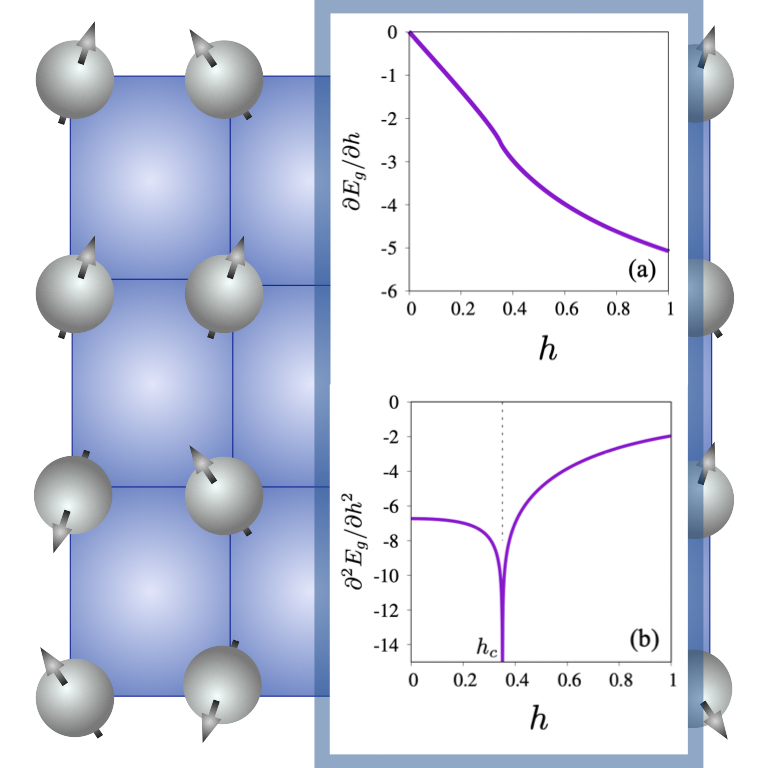Quantum many-body systems
 |
The last two decades have witnessed a large number of investigations on the characterization of entanglement as well as quantum information-theoretic measures in quantum many-body systems, especially, in quantum spin models, Bose-Einstein condensates, etc. On one hand, it has led to a better understanding of the novel phases and phenomena occurring in quantum many-body systems using quantum information language, along with the emergence of novel tools and techniques such as DMRG, PEPS, and MERA. On the other hand, highly entangled ground states of complex quantum spin Hamiltonians have been identified as resource states for several quantum information processing tasks, including measurement-based quantum computation and topological quantum error correction. However, the computational difficulty of calculating the multipartite measures of quantum correlations including entanglement offers challenges in the context of quantum many-body systems, which we address through our research. |
Related works
-
Entanglement in XYZ model on a spin-star system: Anisotropy vs. field-induced dynamics
J. G. Krishnan, Harikrishnan K. J., and A. K. Pal
arXiv: 2307.15949 -
Estimating entanglement in 2D Heisenberg model in the strong rung-coupling limit
C. B. Pushpan, Harikrishnan K. J., P. Narayan, and A. K. Pal
arXiv: 2301.04615 -
Distinguishing phases via non-Markovian dynamics of entanglement in topological quantum codes under parallel magnetic field
Harikrishnan K. J. and A. K. Pal
Journal Ref: Phys. Rev. A 105, 052421 (2022)
arXiv: 2108.11198